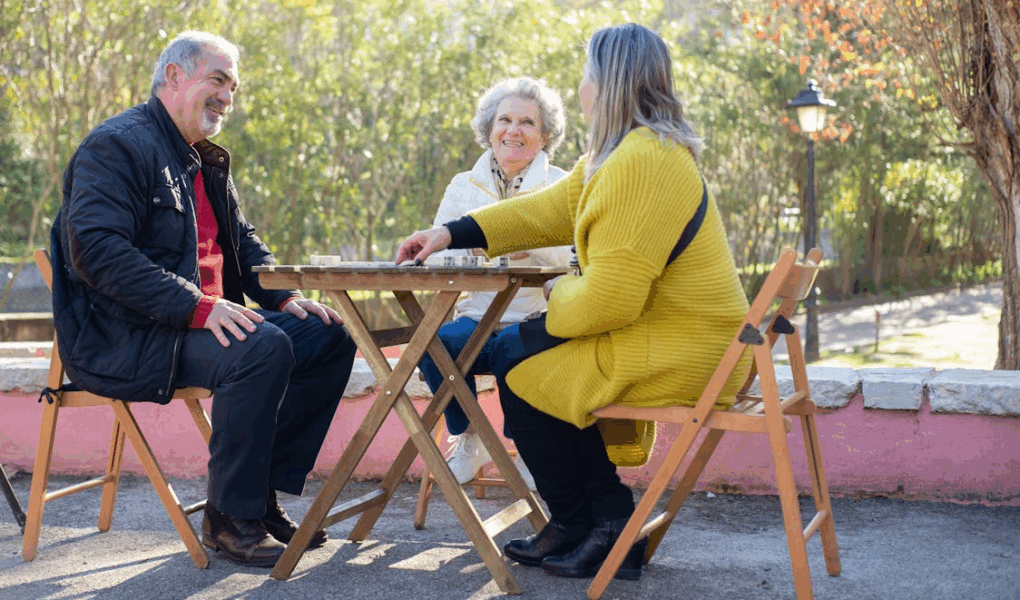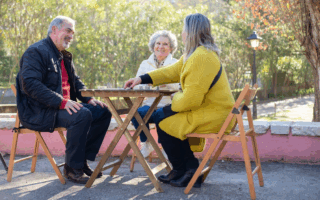Parenting comes with its own highs and lows, but when you’re also caring for an elderly parent or loved one, life can feel overwhelmingly full. If you’ve found yourself juggling packed lunchboxes one minute and doctor’s appointments the next, you’re not alone.
While the sense of fulfilment is undeniable, balancing these roles also brings challenges. Luckily, there are ways to manage the demands while ensuring everyone in your family maintains a sense of independence and dignity. Below, we’ll explore practical tips to help lighten the load, promote independence for your elderly loved ones, and find moments of calm amidst the chaos.
Promoting Independence with Mobility Aids
One of the keys to reducing stress is to empower your elderly loved ones to maintain independence where possible. Mobility aids are a fantastic starting point. They can make a world of difference, offering both practical support and emotional reassurance.
Here are a few popular options to consider for fostering independence outdoors and in public spaces:
- Foldable Wheelchairs: Ideal for outings or running errands, folding wheelchairs are lightweight, portable, and comfortably fit into car boots. They give your loved ones the freedom to stay mobile without being overly reliant on you.
- Walking Frames or Sticks: For those who need a bit of extra support while walking, a sturdy frame or stick can promote confidence and allow them to move at their own pace.
- Accessible Public Transport: Many buses and trains are fitted with ramps and priority seating, making travel more comfortable for elderly passengers. Research transport options in your area and keep a list handy for trips or appointments.
Discover Local Support and Activity Groups
Another resource worth tapping into is local community groups. Many towns offer gatherings specifically tailored for older adults, where they can socialise and engage in fun, low-impact activities. Whether it’s a weekly coffee morning, arts and crafts session, or a light exercise group, these communities can help combat loneliness and build confidence.
Check your local council’s website or visit community centres to find these groups. Not only does this lighten the load for you as their carer, but it also gives your loved one the opportunity to feel part of their own independent world.
Improving Independence in the Home
Creating a safe and accessible home environment is crucial for independence. With just a few adjustments, your elderly loved ones can feel more comfortable tackling everyday tasks.
Bathroom Safety
Slippery bathroom floors are a hazard, but affordable aids can significantly reduce the risk of falls.
- Non Slip Bath Mats: These offer stable footing inside and outside the shower or bath.
- Grab Rails: Fitted near the toilet or bathtub, grab rails provide extra support for sitting, standing, or moving around.
- Shower Seats: Perfect for those who may struggle to stand for long periods, a shower seat ensures both safety and relaxation while bathing.
Kitchen Independence
Maintaining confidence in the kitchen is an important step for independence. Consider handy tools like jar openers for arthritic hands or kettles with a tilt-and-pour mechanism to avoid heavy lifting. There are also lightweight cutlery options and ergonomic grips available to aid mobility while eating or preparing food.
Modifications for Multi-Storey Homes
If your home has multiple levels, fitting stairlifts or ramps can open up the entire property for your loved one. For smaller budgets, consider moving their primary bedroom downstairs to avoid repeated trips up and down the stairs.
Communication is Key
Balancing dual caregiving roles isn’t just about tackling chores; it’s about open, honest communication. Speak to both your kids and your elderly loved ones about how you’re feeling and, where appropriate, involve them in the caregiving process.
For example, older children can help with light household tasks like grocery shopping or gardening for their grandparents. This creates meaningful bonding moments while also easing some of your responsibilities.
Don’t Forget to Care for Yourself
It’s tempting to push your own needs aside, but remember that staying well-rested, healthy, and mentally balanced makes you a better carer. Here’s how to look after your own well-being while managing everything else.
- Ask for Help: Whether it’s hiring a professional carer for part-time support, leaning on family, or reaching out to friends, it’s okay to admit you can’t do it all alone.
- Join Caregiver Groups: Knowing you’re not the only one in this position can be a relief. Many caregivers find solace and practical advice in support groups.
- Set Boundaries: Recognise your limits and learn to say “no” when a role stretches you too thin. It’s not selfish; it’s necessary.
Small Steps, Big Balance
Life as a parent and caregiver is undoubtedly busy, but it’s also filled with opportunities to create joy, independence, and connection. By integrating helpful aids, fostering independence, and relying on local resources, you can build a manageable routine that lets everyone thrive.
Need more personalised advice? Don’t hesitate to consult with mobility professionals or explore online resources to find solutions tailored to your loved ones.
Above all, remember that balancing caregiving doesn’t mean handling everything alone. Take it one day at a time, and you’ll soon find your stride.



